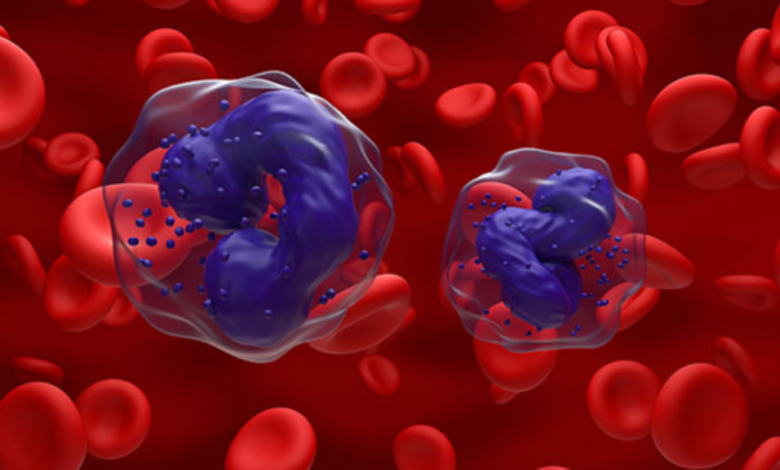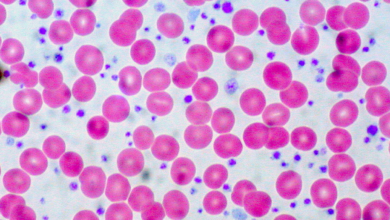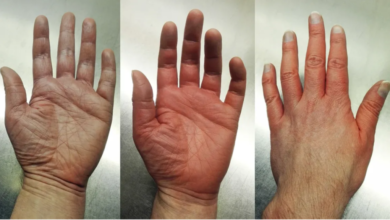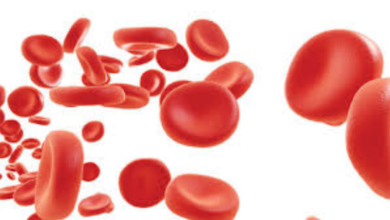Chronic Myelogenous Leukemia (CML)
Chronic Myelogenous Leukemia (CML): Understanding the Disease

What is Chronic Myelogenous Leukemia (CML)?
Chronic myelogenous leukemia (CML) is a type of cancer that affects the white blood cells. In CML, the bone marrow produces too many white blood cells, particularly a type called granulocytes.
Types of Chronic Myelogenous Leukemia (CML)
While there aren’t distinct subtypes of CML, it can be classified into different phases based on its progression:
• Chronic phase: The early stage, where the disease progresses slowly.
• Accelerated phase: An intermediate stage, where the disease progresses more rapidly.
• Blast crisis: The advanced stage, characterized by a rapid increase in immature white blood cells.
Symptoms of Chronic Myelogenous Leukemia (CML)
Early-stage CML often doesn’t cause any noticeable symptoms. However, as the disease progresses, symptoms may include:
• Fatigue
• Weakness
• Frequent infections
• Easy bleeding or bruising
• Swollen lymph nodes
• Enlarged spleen
• Loss of appetite
• Weight loss
• Night sweats
Causes of Chronic Myelogenous Leukemia (CML)
CML is caused by a specific genetic abnormality, known as the Philadelphia chromosome. This abnormality leads to the uncontrolled growth of white blood cells.
Who Can Suffer from Chronic Myelogenous Leukemia (CML)?
CML can affect people of all ages, but it’s more common in adults.
Diagnostic Tests for Chronic Myelogenous Leukemia (CML)
To diagnose CML, a doctor may use a combination of tests, including:
• Complete blood count (CBC): To check for abnormalities in the blood cells.
• Bone marrow aspiration and biopsy: To examine bone marrow cells.
• Cytogenetic analysis: To identify the Philadelphia chromosome.
• Polymerase chain reaction (PCR) test: To detect the specific genetic abnormality associated with CML.
Stages of Chronic Myelogenous Leukemia (CML)
CML is typically divided into three phases:
- Chronic phase: The early stage, where the disease progresses slowly.
- Accelerated phase: An intermediate stage, where the disease progresses more rapidly.
- Blast crisis: The advanced stage, characterized by a rapid increase in immature white blood cells.
Treatment of Chronic Myelogenous Leukemia (CML)
The treatment for CML has significantly improved in recent years, thanks to targeted therapy. Common treatments include:
• Targeted therapy: Drugs like tyrosine kinase inhibitors (TKIs) specifically target the abnormal protein that causes CML.
• Stem cell transplantation: In some cases, a stem cell transplant may be considered, especially for patients who don’t respond well to TKIs or who experience disease progression.
• Chemotherapy: In some cases, chemotherapy may be used in combination with other treatments.
Diet and Chronic Myelogenous Leukemia (CML) Prevention
While a healthy diet can support overall health and strengthen the immune system, it cannot directly prevent CML. However, maintaining a balanced diet can help the body fight infection and maintain overall well-being.
Here are some general dietary recommendations:
• A balanced diet: A diet rich in fruits, vegetables, and whole grains can help.
• Limit processed foods and sugary drinks: These can contribute to weight gain and other health problems.
• Maintain a healthy weight: Obesity is linked to an increased risk of certain cancers.
Overall Survival Rate of Chronic Myelogenous Leukemia (CML)
The overall survival rate for CML has significantly improved with the advent of targeted therapy. With timely diagnosis and effective treatment, many people with CML can live long and productive lives.
Doctor to Consult
A hematologist-oncologist is the best doctor to consult for CML.
Diseases Associated with Chronic Myelogenous Leukemia (CML)
CML is not directly associated with other specific diseases. However, certain genetic factors can predispose individuals to developing CML.
How to Prevent Chronic Myelogenous Leukemia (CML)
While there’s no guaranteed way to prevent CML, maintaining a healthy lifestyle can help reduce the risk of certain factors that may contribute to the disease:
• Limit exposure to radiation and certain chemicals: Exposure to these substances can increase the risk of certain types of cancer.
• Maintain a healthy weight: Obesity is linked to an increased risk of certain cancers.
• Regular check-ups: Regular check-ups can help detect any abnormalities early on.
• Healthy lifestyle: A healthy lifestyle, including a balanced diet and regular exercise, can help boost the immune system.





